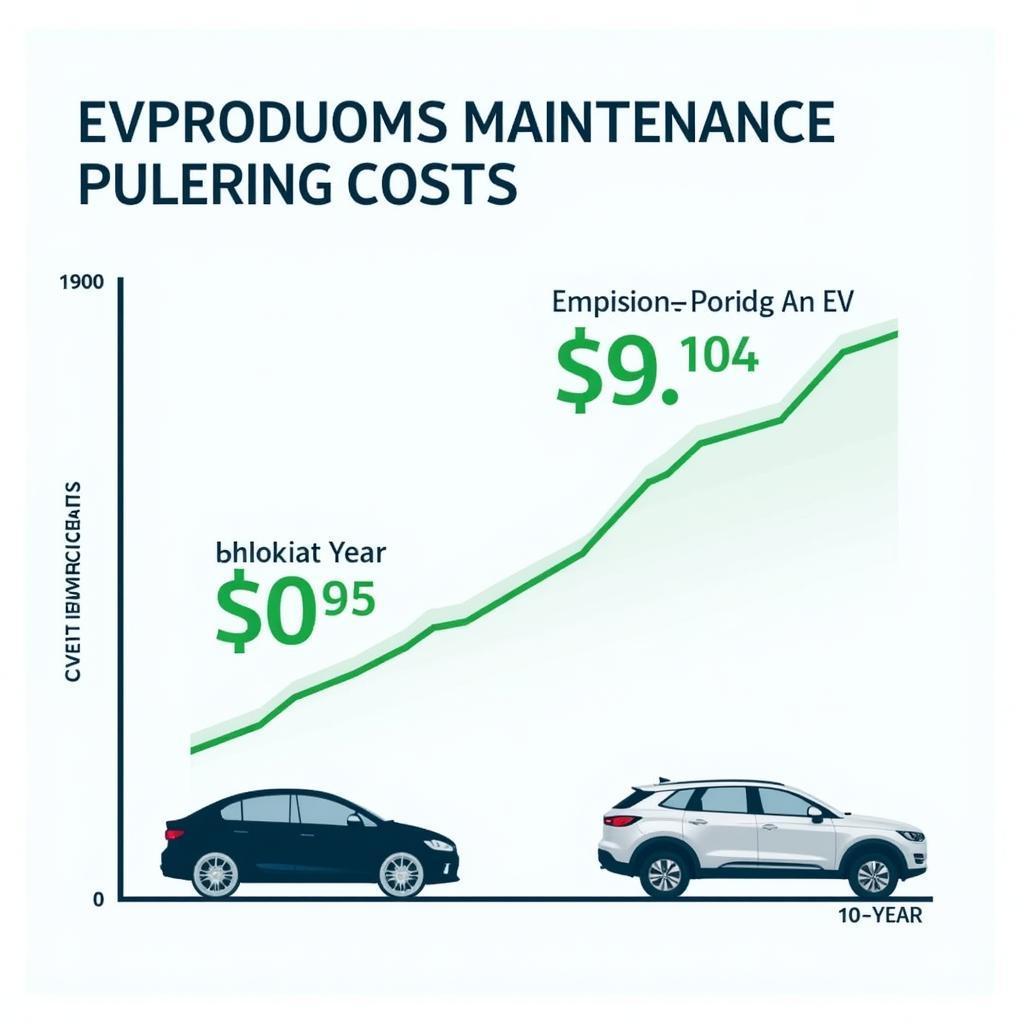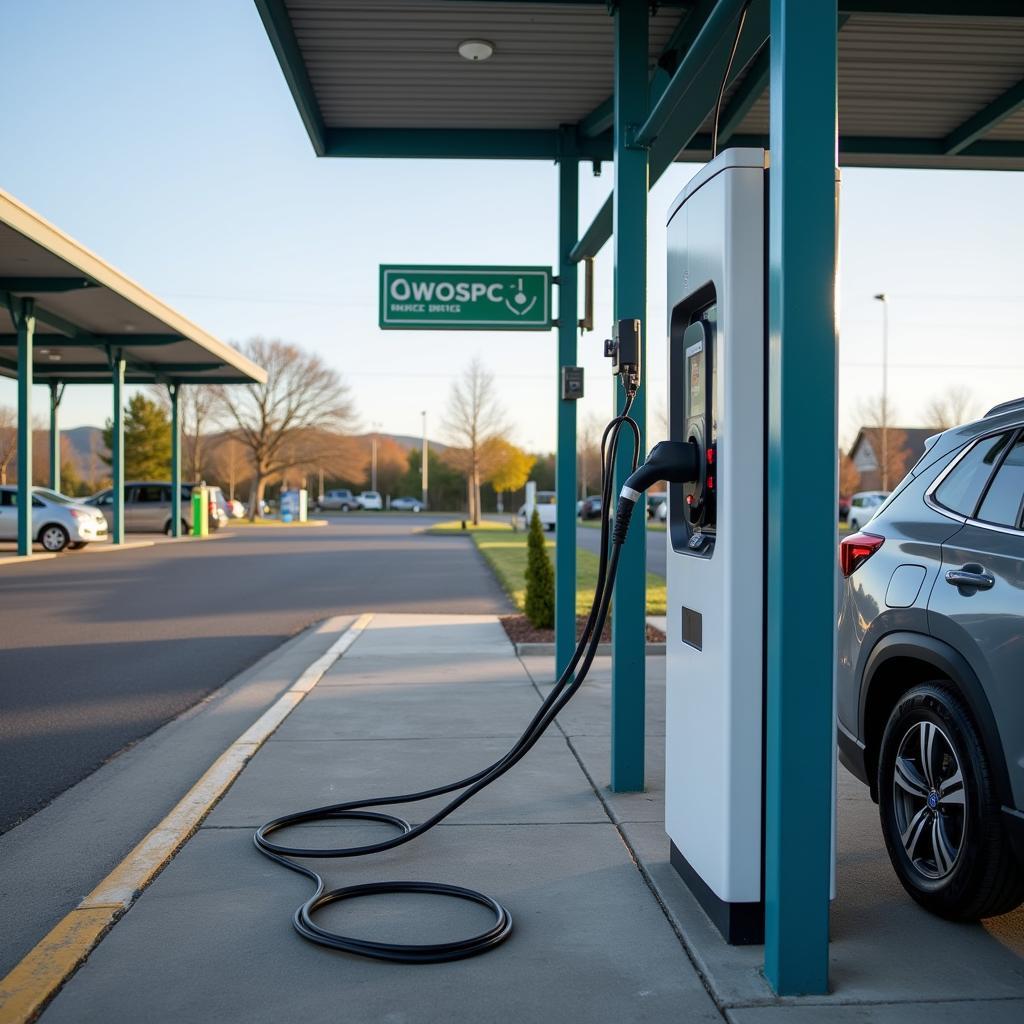Are Electric Cars Expensive to Service?
Are Electric Cars Expensive To Service? This is a common question for those considering making the switch to an electric vehicle (EV). While the initial purchase price of an EV can be higher than a comparable gasoline-powered car, the long-term maintenance costs can tell a different story. Let’s dive into the details of EV servicing and explore the factors that influence their overall maintenance expenses.
Understanding Electric Car Servicing
Electric cars have fewer moving parts than traditional combustion engine vehicles. This fundamental difference translates to a reduced need for regular maintenance. No oil changes, spark plug replacements, or exhaust system repairs are needed. This simplifies the servicing process and often leads to lower costs. However, EVs still require some routine checks and occasional part replacements.
Key Maintenance Aspects of Electric Cars
- Battery Health: The battery is the heart of an EV, and its health is crucial. Regular checks ensure optimal performance and longevity. While battery replacement can be expensive, warranties often cover a significant portion of the cost for several years.
- Tire Rotation and Replacement: Just like gasoline cars, EVs require regular tire rotations and eventual replacements. Due to the instant torque of electric motors, tire wear can sometimes be accelerated.
- Brake System: Regenerative braking in EVs reduces wear and tear on traditional brake pads. However, brake fluid still needs to be checked and changed periodically, and brake components will eventually need replacing.
- Cooling System: EVs have cooling systems for the battery and power electronics. These systems require regular checks and occasional coolant flushes.
- Software Updates: EVs often receive software updates that can improve performance, efficiency, and add new features. These updates are typically handled by the dealership or remotely.
Comparing EV Servicing Costs with Gasoline Cars
While the specifics vary depending on the make and model, EV servicing costs are generally lower than those of gasoline cars over the long term. The absence of oil changes, transmission fluid flushes, and other combustion engine-related maintenance significantly reduces recurring expenses. However, it’s essential to consider potential long-term costs such as battery replacement, which can be a substantial expense.
Factors Influencing EV Service Costs
- Make and Model: Just like gasoline cars, different EV makes and models have varying service requirements and costs.
- Driving Habits: Aggressive driving can accelerate tire wear and potentially impact battery health, leading to increased maintenance needs.
- Climate: Extreme temperatures can affect battery performance and longevity.
- Dealership vs. Independent Mechanic: Choosing an independent mechanic specializing in EVs might offer more competitive pricing compared to dealerships.
 Comparing EV and Gasoline Car Maintenance Costs
Comparing EV and Gasoline Car Maintenance Costs
what should be included in a basic car service
Addressing Common Concerns about EV Servicing
Is EV battery replacement really that expensive?
While battery replacement can be a significant cost, battery technology is continuously improving, leading to longer lifespans and lower replacement costs. Furthermore, warranties often provide coverage for a considerable period, mitigating the financial risk.
Where can I service my electric car?
Many dealerships offer specialized EV servicing. Additionally, a growing number of independent mechanics are becoming qualified to work on electric vehicles.
is there services that help transport a car
 Electric Vehicle Charging Station at a Service Center
Electric Vehicle Charging Station at a Service Center
Conclusion
Are electric cars expensive to service? The answer is generally no, especially when considering long-term maintenance costs. While potential expenses like battery replacement exist, advancements in battery technology and warranties help mitigate these costs. By understanding the key maintenance aspects of EVs and comparing them to gasoline cars, you can make an informed decision about the true cost of ownership.
what is the purpose of a care service
FAQ
- Do EVs require regular oil changes? No, electric cars do not have oil, therefore they don’t need oil changes.
- How often should I rotate my EV’s tires? Tire rotation schedules vary by make and model, but it’s generally recommended every 6,000-8,000 miles.
- What is regenerative braking? Regenerative braking captures energy during braking and uses it to recharge the battery, increasing efficiency and reducing brake wear.
- How long do EV batteries typically last? Most EV batteries are designed to last for several years, often exceeding 100,000 miles.
- Are there government incentives for EV servicing? Some regions offer incentives for EV purchases, but incentives specifically for servicing are less common.
- Can any mechanic service an electric car? While many mechanics are becoming EV certified, it’s crucial to find a qualified technician with experience in electric vehicle repair.
- How does climate affect EV battery performance? Extreme temperatures, both hot and cold, can impact battery performance and range.
are there services that bring car batteries
what to consider when choosing car service
For further assistance, contact us via WhatsApp: +1(641)206-8880, Email: [email protected] or visit us at 456 Oak Avenue, Miami, FL 33101, USA. Our customer service team is available 24/7.

